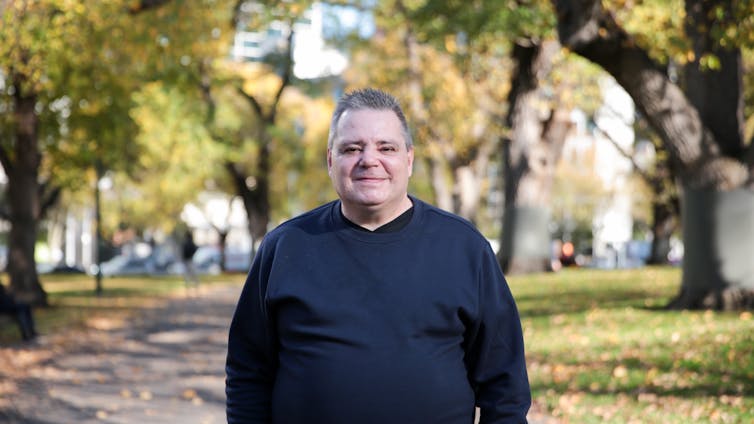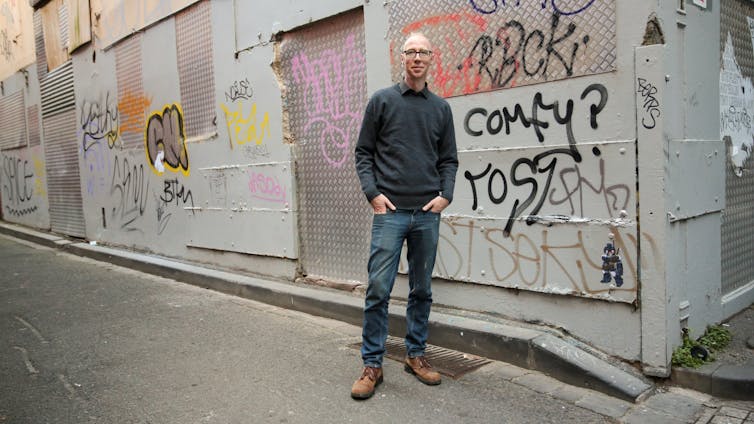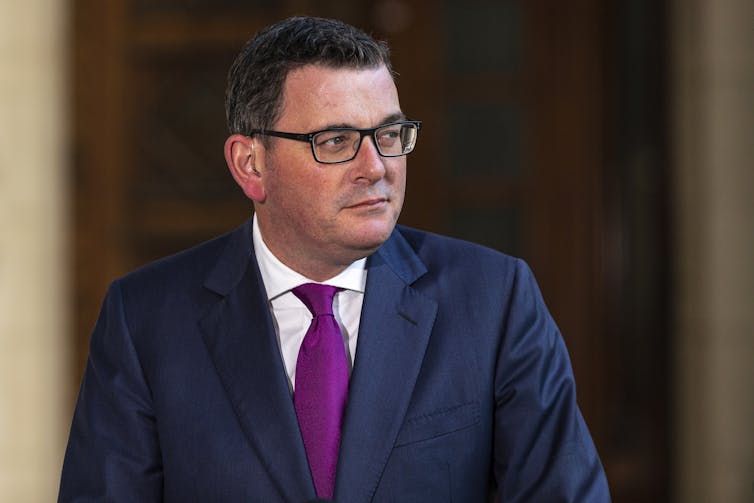From hospital to homeless: Victoria’s mental health system fails the most vulnerable
- Written by Tony Dalton, Emeritus Professor, Centre for Urban Research, RMIT University
People experiencing homelessness and poor mental health are among Australia’s most vulnerable citizens. Without secure housing and an accessible mental healthcare system, recovery from mental illness is seriously compromised.
And the upcoming Royal Commission into Victoria’s Mental Health System will be judged by how it responds to this crisis of mental health and housing.
Read more: When it's easier to get meds than therapy: how poverty makes it hard to escape mental illness
In recent weeks, we conducted a census of data from the Melbourne-based community agency, Launch Housing, and found 44% of the 2,023 clients were experiencing mental illness. Only half of these clients were receiving support from a mental health service.
Our interviews with these clients show how the Victorian mental health system repeatedly fails this group. Without exception, these clients emphasised the significance of safe and long-term housing to mental health stability and recovery.
One person told us:
you’re homeless and that’s the most important thing […] your mental state, it’s just got to be put on hold […] you don’t want to go and see anybody about your mental state because you need housing and that’s all you’re really concentrating on: where am I going to sleep tonight?
People often cycle through the mental healthcare system. This system includes primary health care services, and specialist community based and inpatient services in hospitals. Many then exit this system into homelessness, only to return repeatedly to hospital-based care, and sometimes the prison system.
Read more: To tackle our mental health crisis, career guidance could be surprisingly important
In Victoria, for instance, more than 500 people are being discharged from acute mental healthcare each year into rooming houses, motels and other forms of homelessness. And discharging someone into homelessness is unacceptable.
 Launch Housing client Steve says having a safe, stable home is imperative to his mental health.
Author provided (No reuse)
Launch Housing client Steve says having a safe, stable home is imperative to his mental health.
Author provided (No reuse)
Tragic consequences
These failures of the mental health and housing systems sometimes lead to tragic consequences.
A review of Launch Housing’s client death register shows there were 45 known deaths of current or former clients for the period of June 2018 to June 2019.
Not all deaths are directly attributable to mental health. But of the 45 people who died of different causes in this period, mental health was a contributing factor to many of them. Thirty-seven people had a self-disclosed mental illness and 18 were in contact with mental health services at the time of their death.
These are not new problems, and past reviews of Australia’s mental health system have resulted in missed opportunities for action. Fortunately, there are known solutions.
Read more: Australia's social housing policy needs stronger leadership and an investment overhaul
Here are three steps Australia can take to significantly improve the mental health of people experiencing homelessness.
1. Sustain rental tenancies
Programs such as those sustaining a rental tenancy when someone has a mental health episode are immensely valuable.
They help households with people who are homeless or at risk of homelessness by providing financial and practical assistance to establish and maintain their private rental tenancies.
With a persistent shortage of affordable private rentals and a gross under-supply of social housing in Victoria, sustaining tenancies is critical.
 Akemi, a Launch Housing tenant who is living with a mental illness, says accessing mental health services while he was experiencing homelessness was virtually impossible.
Author provided
Akemi, a Launch Housing tenant who is living with a mental illness, says accessing mental health services while he was experiencing homelessness was virtually impossible.
Author provided
2. Improve support from hospital with appropriate housing
During the transition away from hospital after a mental health episode, people should be supported with appropriate housing.
It’s common for adults experiencing homelessness and mental illness to be hospitalised and then discharged without a safe place to live, such as the hundreds of Victorians who left mental healthcare and landed into a form of homelessness.
What’s more, American research from 2013 into intermediate care for people experiencing homelessness showed that medical respite programs reduce future hospital admissions, inpatient days, and hospital readmissions. They also result in improved housing outcomes.
Read more: 'I didn’t want to be homeless with a baby': young women share their stories of homelessness
Medical respite programs provide a supportive, home-like environment and services to people who are at risk of or experiencing homelessness, such as The Sister Francesca Healy Cottage (The Cottage) in Melbourne. Sadly in Australia, such important services are in short supply.
3. Provide permanent supportive housing
Currently, people’s housing needs are “invisible” to the mental health system and there’s a presumption that patients are adequately housed.
So it’s important to boost the number of permanent supportive housing for people experiencing episodes of mental illness, and who are also heavy users of health and criminal justice services, crisis-related homelessness services and emergency housing services.
It also makes financial sense for the Victorian government to evaluate the need for permanent supportive housing.
 The Victorian Royal Commission has an opportunity to recognise the critical connection between mental illness and housing stability.
Daniel Pockett/AAP
The Victorian Royal Commission has an opportunity to recognise the critical connection between mental illness and housing stability.
Daniel Pockett/AAP
This was recently shown by the Brisbane Common Ground initiative. They found that each year, governments can save more than A$13,000 per person if the chronically homeless had access to secure, long term housing and relevant support services.
Launch Housing provides a Common Ground service in Melbourne, but it warrants expansion, as promised by Lord Mayor Sally Capp in 2018.
Read more: What a difference a month makes, but Victoria can still do more to get housing and planning right
The Royal Commission has the opportunity to recognise the research evidence showing homelessness and poor mental health outcomes are connected, and to recommend to the state government solutions that are known to work.
Such recognition will provide the Victorian state government with policies to make housing a feature of a reformed mental health system.
Without a place to live it’s nearly impossible to take care of your mental health needs.
Authors: Tony Dalton, Emeritus Professor, Centre for Urban Research, RMIT University





